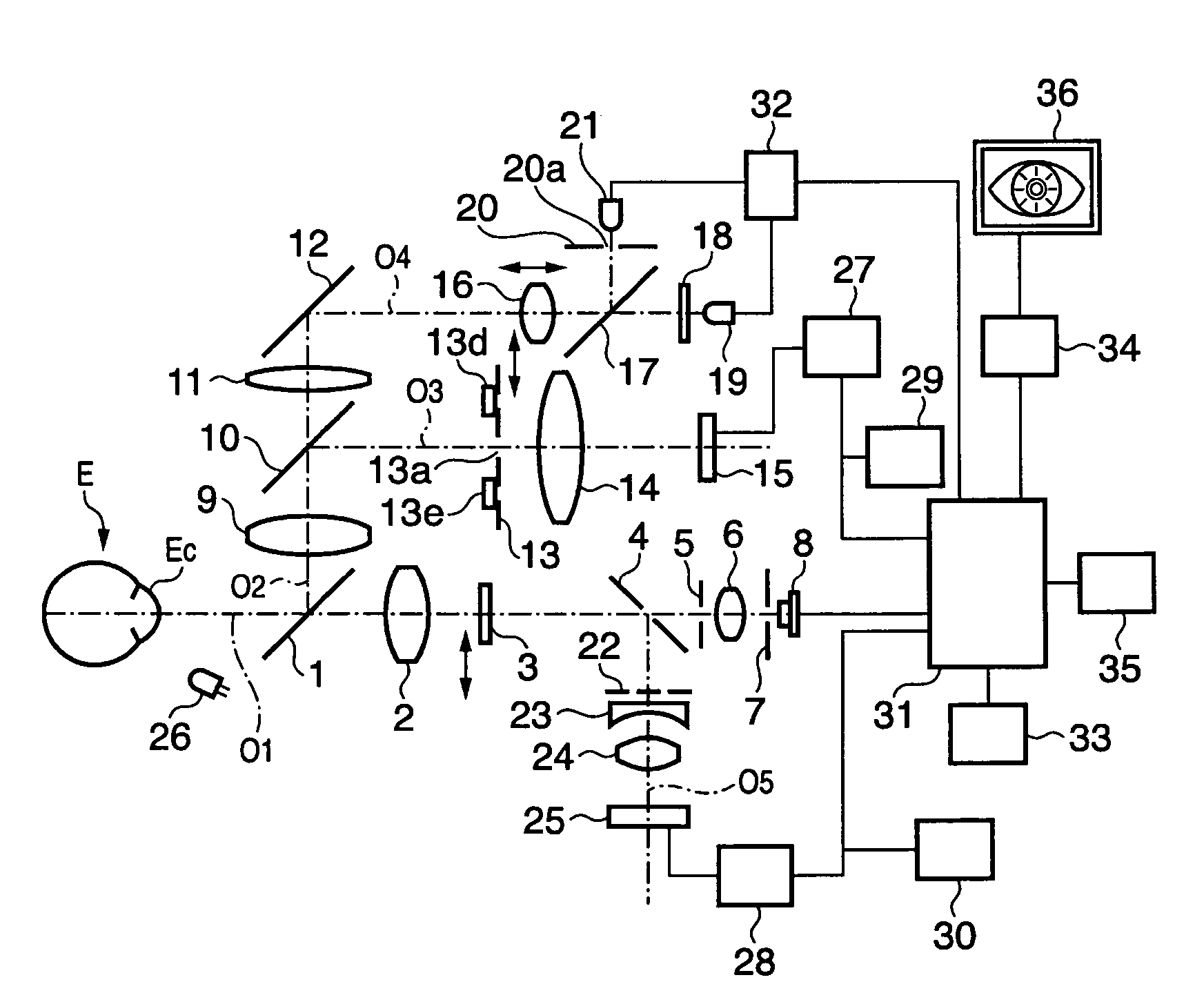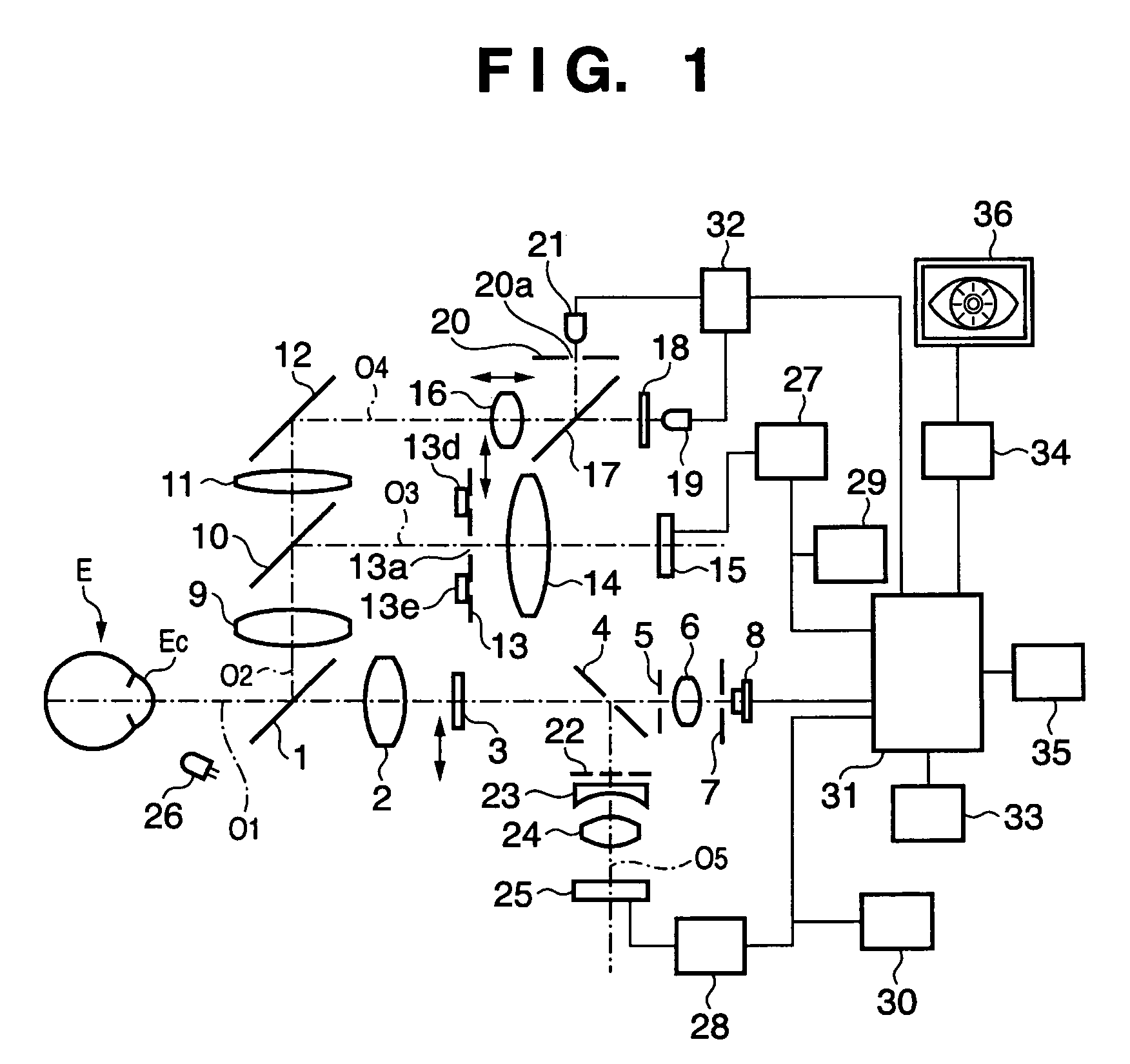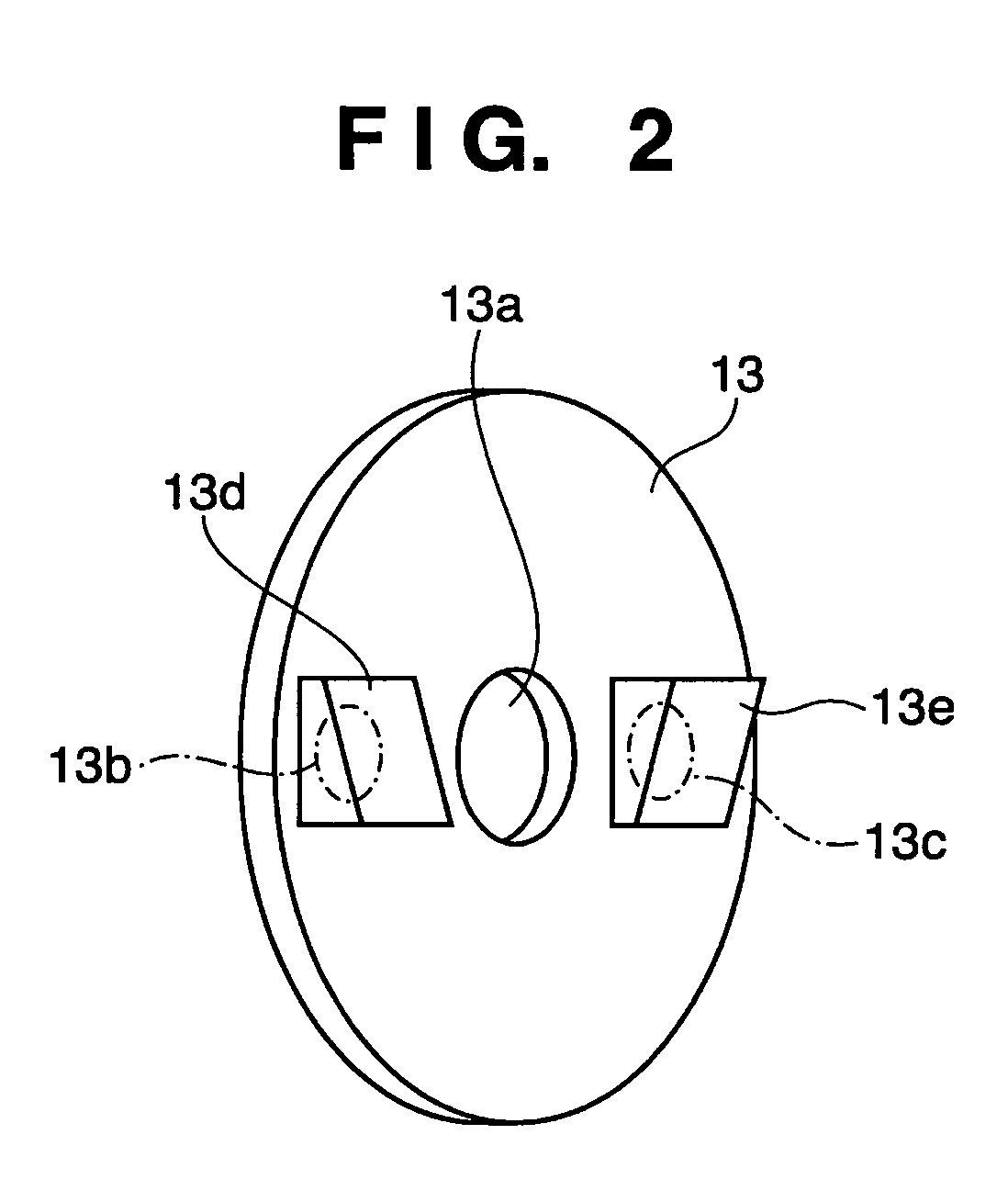Ophthalmic apparatus
a technology of ophthalmology and eyepieces, applied in the field of ophthalmology, can solve the problems of inability to make the subject determine the location of the fixation mark, the stability of the fixation state of the eye, and the measurement of the eye remains constant, so as to improve the stability of the fixation state and the effect of stable and smooth operation
- Summary
- Abstract
- Description
- Claims
- Application Information
AI Technical Summary
Benefits of technology
Problems solved by technology
Method used
Image
Examples
first embodiment
[0025]FIG. 1 is a view showing the arrangement of an ocular refractive power measuring apparatus (ophthalmic apparatus) according to the first embodiment of the present invention. On an optical axis O1 facing an eye E to be examined, there are sequentially arranged a dichroic mirror 1, an objective lens 2 for the measurement of an ocular refractive power, a diffuser 3 which is detachable with respect to the optical axis O1, a perforated mirror 4, a projection stop 5, a projection lens 6, an index plate 7 having a pinhole, and a light source 8 for the measurement of an ocular refractive power. These components constitute a measurement light projection system for the measurement of an ocular refractive power.
[0026]On an optical axis O2 in the reflecting direction of the dichroic mirror 1, there are arranged an objective lens 9 for the observation of the anterior ocular segment, a dichroic mirror 10 having the property of transmitting visible light and reflecting near-infrared light, a...
second embodiment
[0063]FIG. 6 is a view showing the arrangement of a fixation mark projection system according to the second embodiment of the present invention. The same reference numerals as in the first embodiment denote the same parts in the second embodiment. In addition, since an anterior ocular segment observation system, a projection system for ocular refractive power measurement light, an ocular refractive power measurement light-receiving system, an arithmetic processing unit 31, and the like, other than the fixation mark projection system, have the same arrangements as those in the first embodiment, an illustration thereof will be omitted.
[0064]In the fixation mark projection system of the second embodiment, a fixation mark 41 comprising, for example, liquid crystal panels shown in FIGS. 7A to 7C and a light source 42 for fixation mark illumination for a liquid crystal backlight for illuminating the fixation mark 41 are arranged on an optical axis O4. A fixation mark control unit 43 which...
PUM
 Login to View More
Login to View More Abstract
Description
Claims
Application Information
 Login to View More
Login to View More - R&D
- Intellectual Property
- Life Sciences
- Materials
- Tech Scout
- Unparalleled Data Quality
- Higher Quality Content
- 60% Fewer Hallucinations
Browse by: Latest US Patents, China's latest patents, Technical Efficacy Thesaurus, Application Domain, Technology Topic, Popular Technical Reports.
© 2025 PatSnap. All rights reserved.Legal|Privacy policy|Modern Slavery Act Transparency Statement|Sitemap|About US| Contact US: help@patsnap.com



